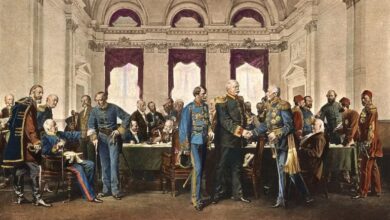Exploring the Rich Culture and Traditions of the Zulu People

The Zulu people, one of the largest ethnic groups in South Africa, boast a vibrant culture deeply rooted in tradition, history, and resilience. From their distinctive language to their colorful ceremonies, the Zulu people have captivated the world with their unique customs and way of life.
History and Origins
The Zulu people, primarily located in the KwaZulu-Natal province of South Africa, trace their origins back to the early 19th century. Under the leadership of King Shaka Zulu, the Zulu Kingdom rose to prominence through military conquests and strategic alliances, expanding its territory and influence across the region.
Despite facing colonization and apartheid in the 20th century, the Zulu people have maintained a strong sense of identity and pride in their heritage. Today, they continue to play a significant role in South Africa’s cultural landscape, contributing to the country’s rich diversity.
Language and Communication
Central to Zulu identity is the isiZulu language, a Bantu language spoken by millions of people in South Africa and neighboring countries. With its distinctive click consonants and melodic tones, isiZulu is not only a means of communication but also a symbol of cultural unity and heritage for the Zulu people.
Traditional Clothing and Adornments
Traditional Zulu attire is renowned for its vibrant colors, intricate beadwork, and symbolic designs. Men often wear amabheshu, a type of skirt made from animal skins or modern fabrics, paired with a headband and sandals. Women don isicholo, a distinctive hat made from woven grass, along with colorful skirts and beaded jewelry.
Beadwork holds particular significance in Zulu culture, with each bead color and pattern conveying specific messages about identity, status, and cultural affiliation. From necklaces and bracelets to elaborate headdresses, beadwork serves as a form of self-expression and cultural pride for the Zulu people.
Ceremonies and Celebrations
Zulu ceremonies and celebrations offer a glimpse into the rich tapestry of Zulu culture, showcasing the community’s deep spiritual beliefs and social cohesion. One of the most iconic Zulu ceremonies is the Umhlanga Reed Dance, where young Zulu women gather to celebrate their virginity and pay homage to the Zulu king.
Other notable ceremonies include traditional weddings, initiation rites for young men, and ancestral ceremonies honoring departed loved ones. These rituals often involve music, dance, and storytelling, serving as a means of preserving cultural heritage and passing down traditions from one generation to the next.
Community and Social Structure
The Zulu people place a strong emphasis on communal values and collective identity, with extended family networks playing a central role in daily life. Respect for elders, adherence to traditional customs, and a sense of ubuntu, or humanity towards others, are core principles that guide Zulu society.
Despite modernization and urbanization, many Zulu communities maintain strong ties to their rural roots, preserving age-old traditions while adapting to contemporary challenges. From rural villages to bustling cities, the spirit of ubuntu continues to bind Zulu communities together, fostering a sense of belonging and solidarity.
Conclusion
The Zulu people’s rich culture and traditions reflect a proud heritage shaped by centuries of history, resilience, and cultural exchange. From their distinctive language and attire to their vibrant ceremonies and community spirit, the Zulu people embody the diversity and dynamism of South Africa’s multicultural society.
As custodians of their cultural legacy, the Zulu people continue to celebrate their heritage while embracing the opportunities and challenges of the modern world. Through their traditions and customs, they inspire admiration and respect, reminding us of the enduring power of culture to unite, inspire, and enrich our lives.

